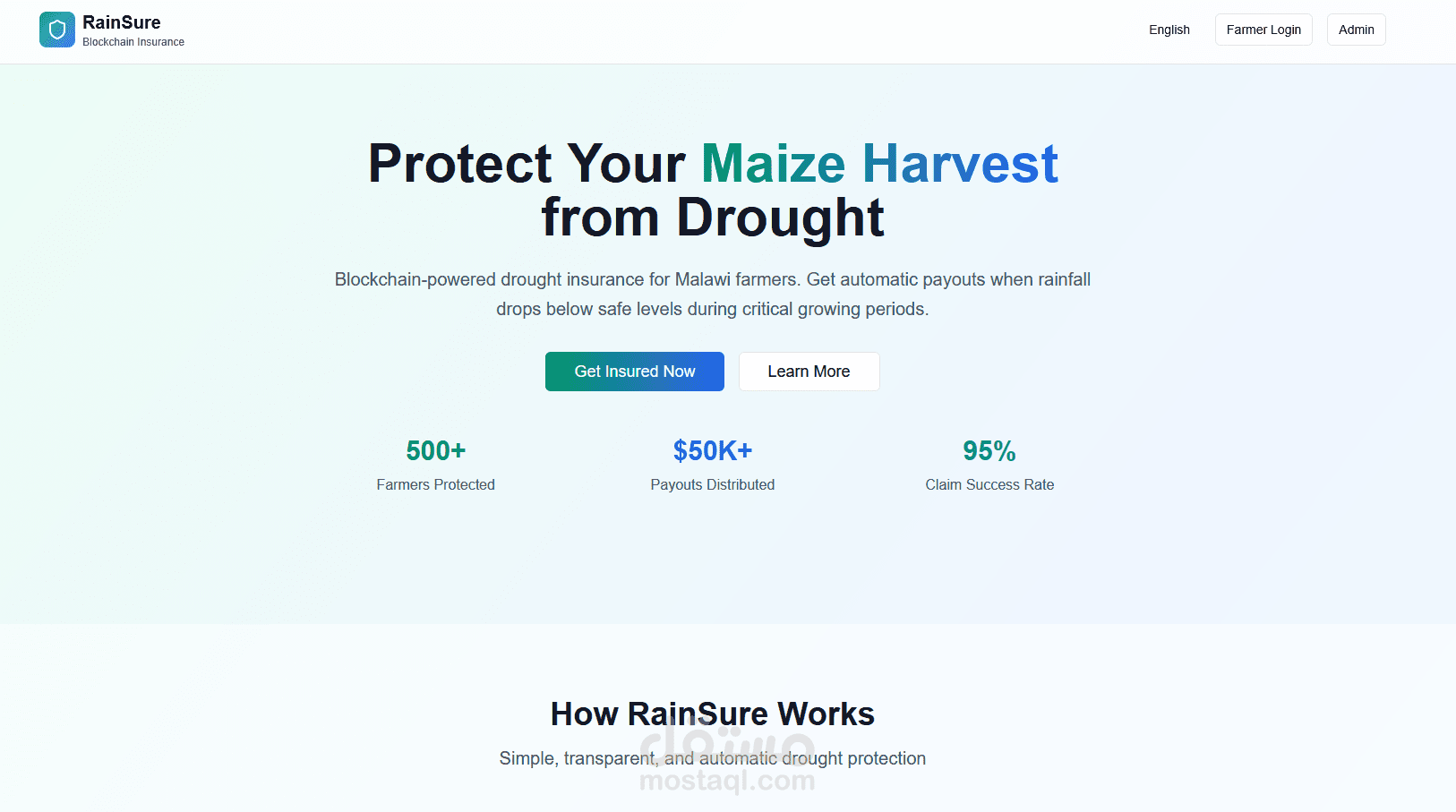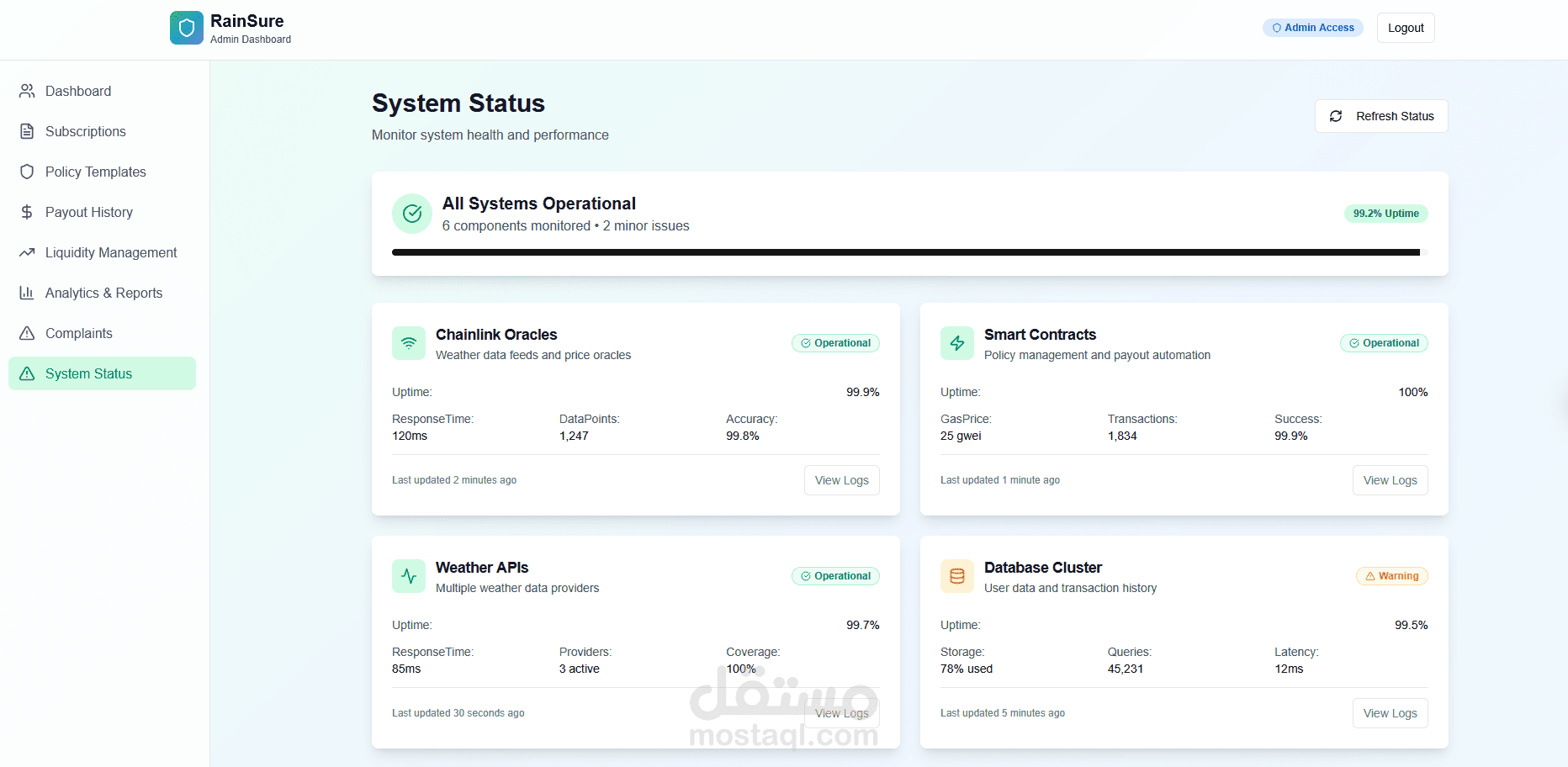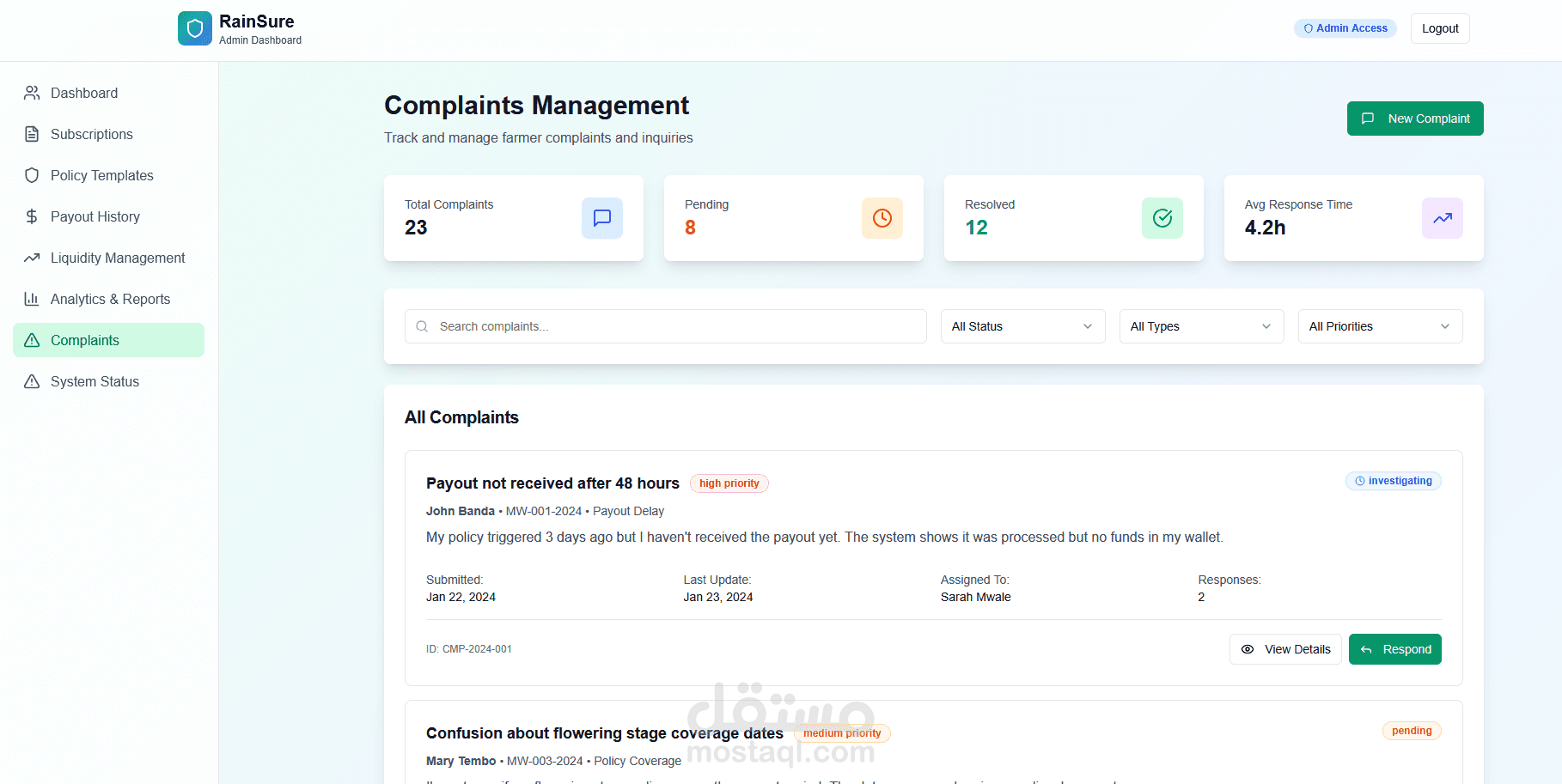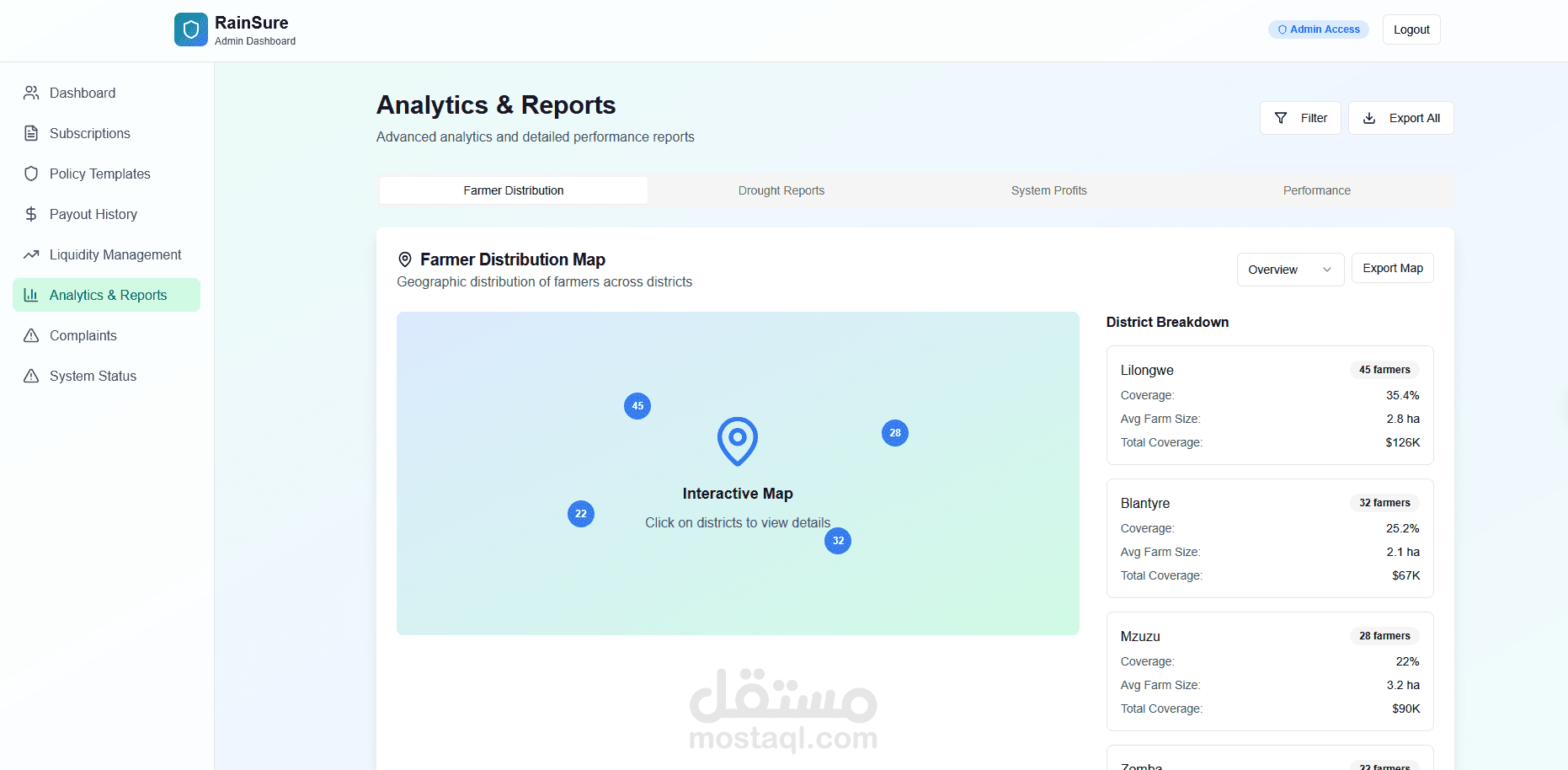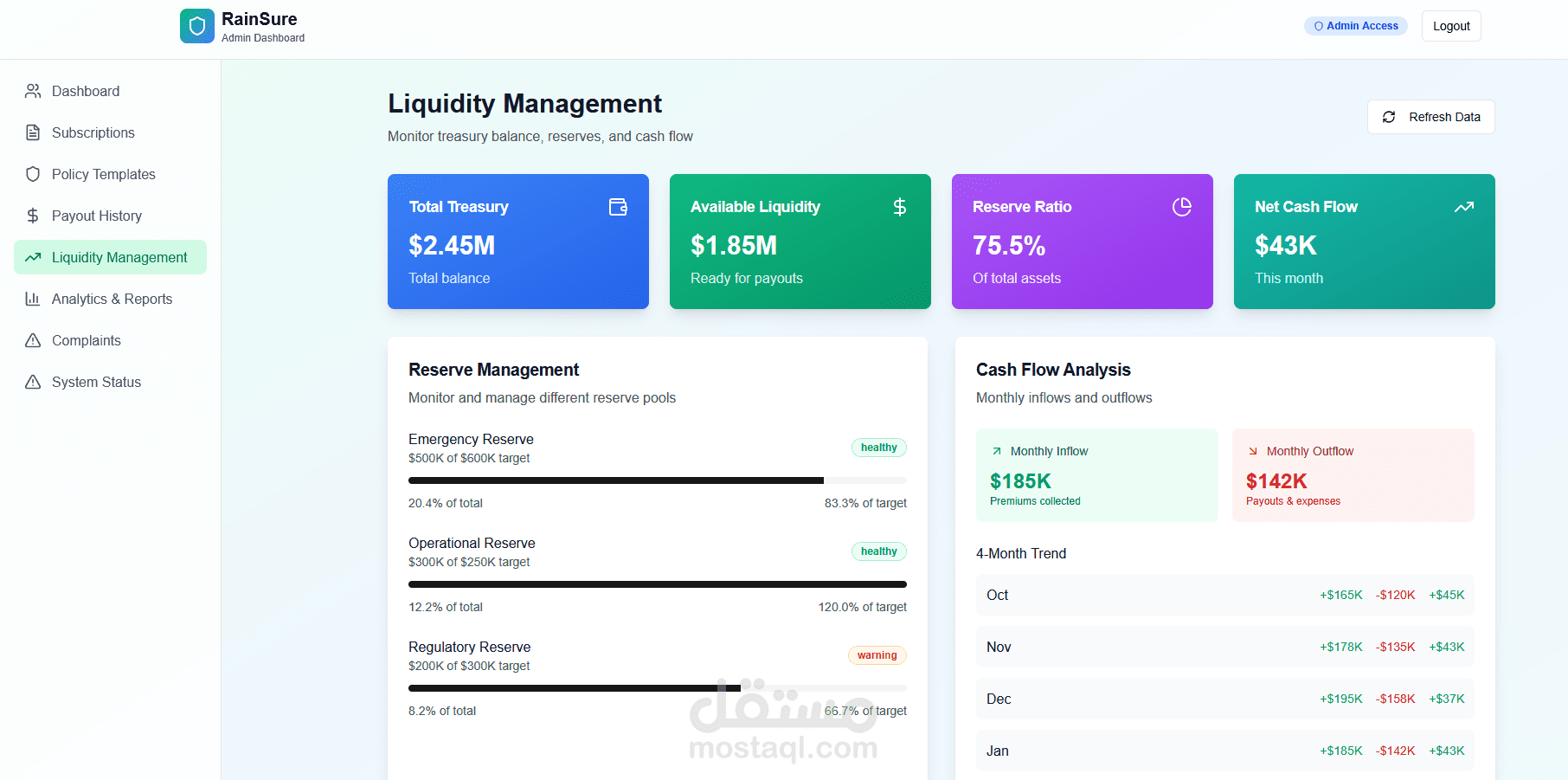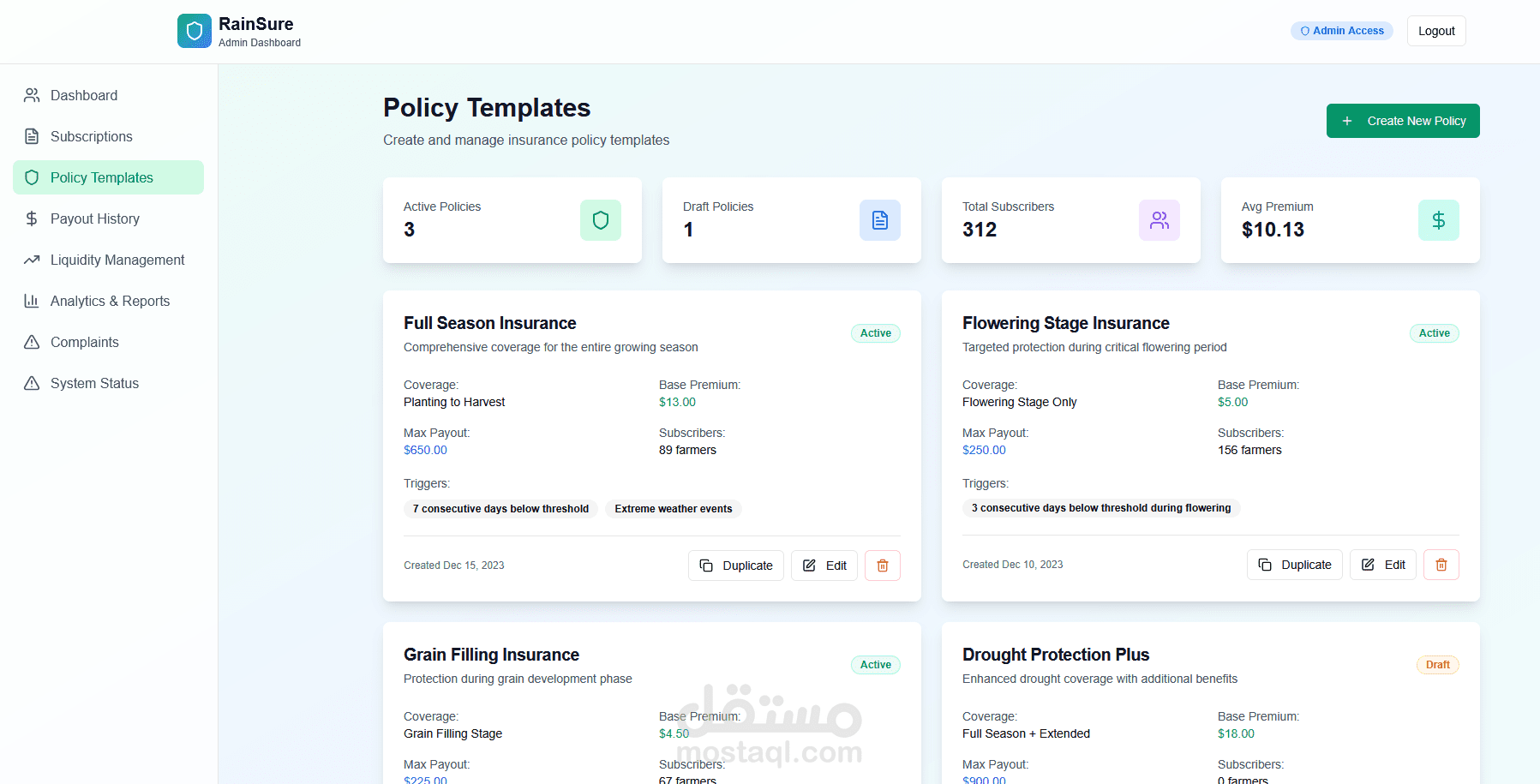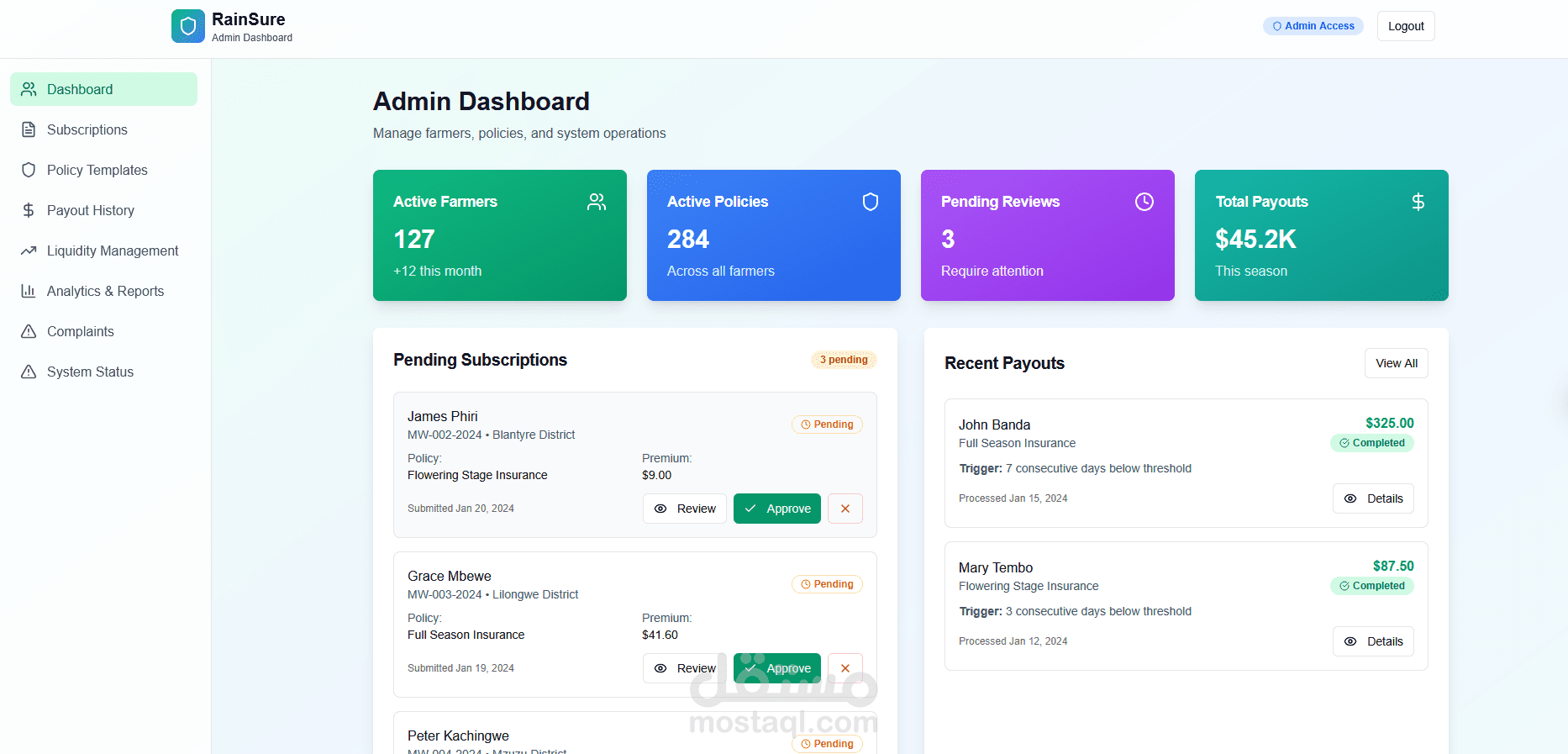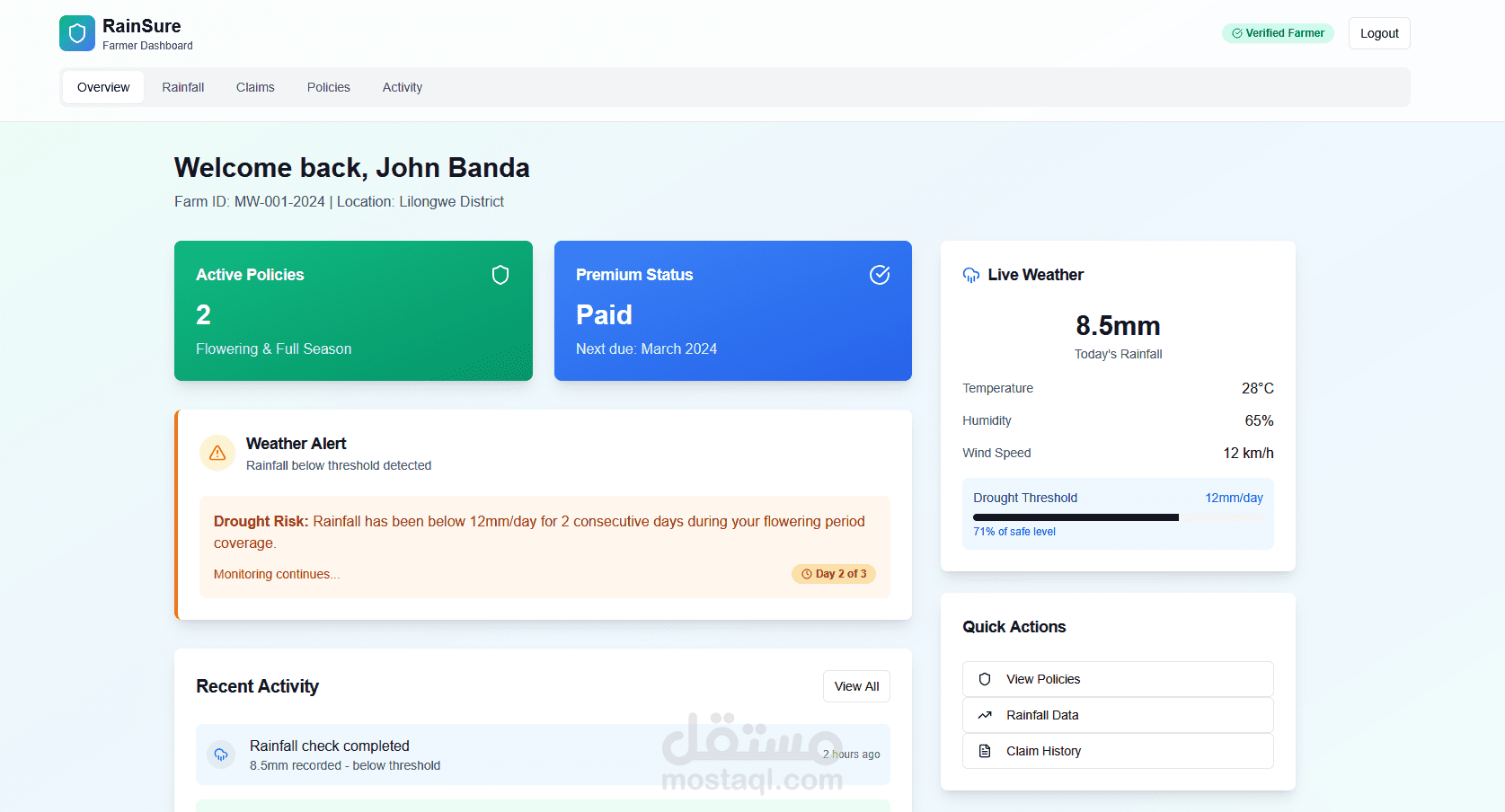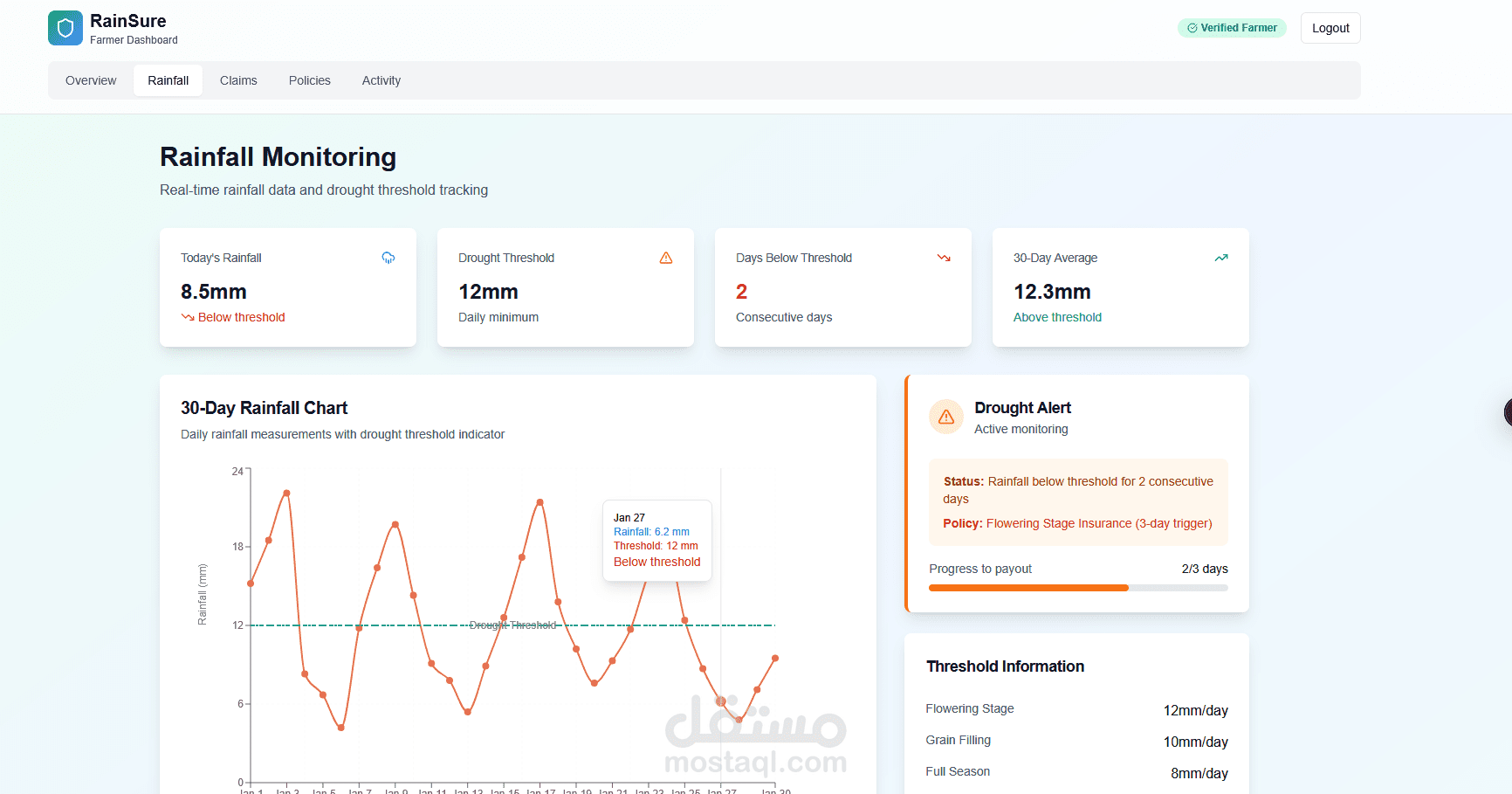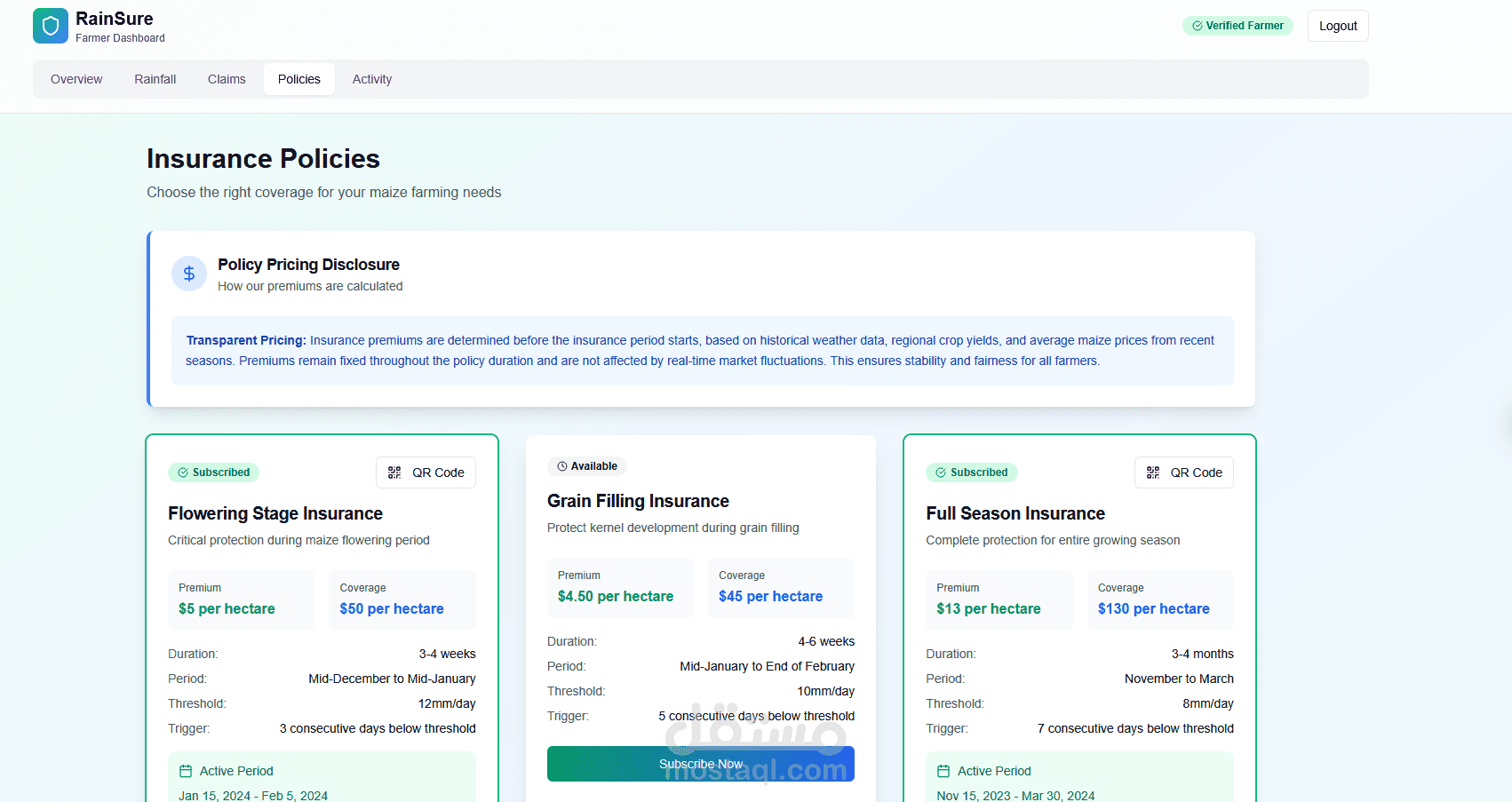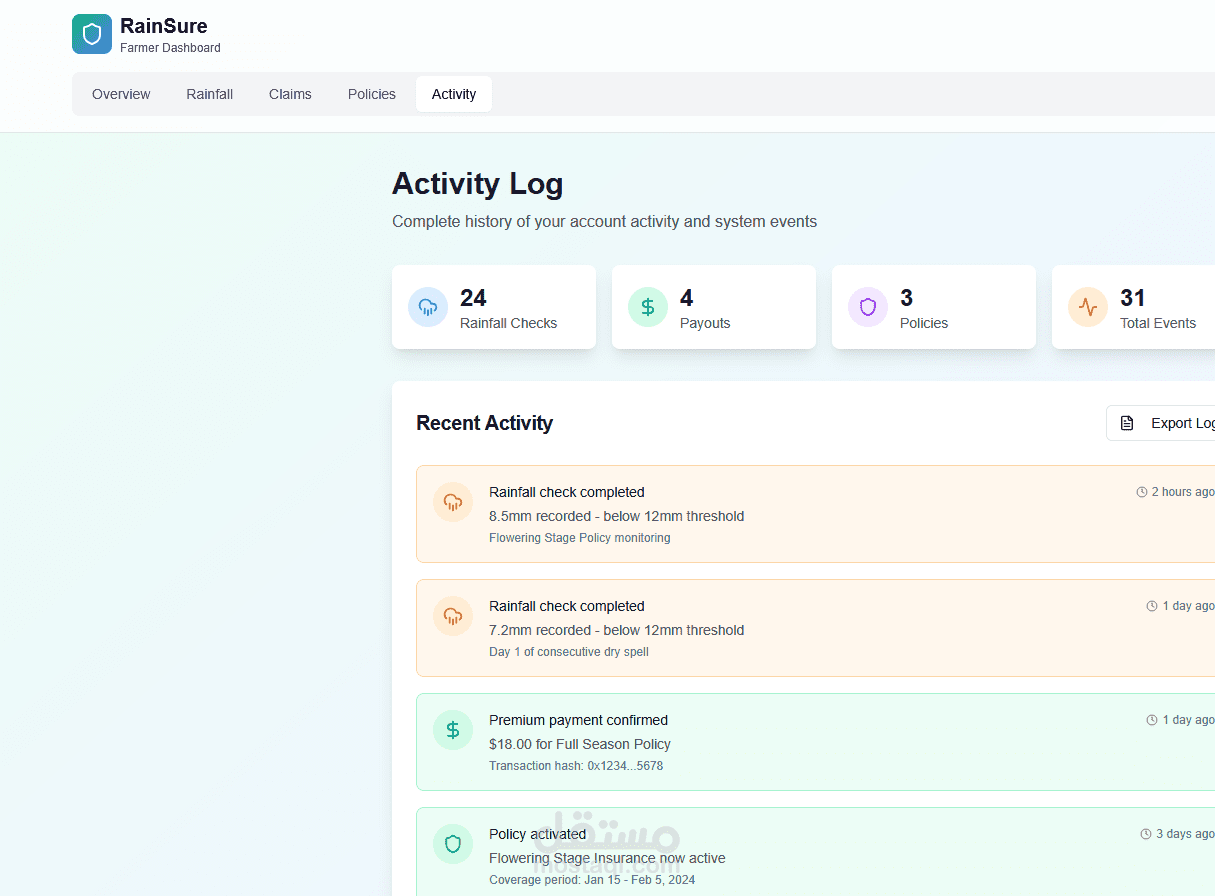RainSure (Agricalture Insurance System)
تفاصيل العمل
Blockchain-Based Drought Index Insurance Platform
What is this?
A decentralized insurance platform that automatically compensates maize farmers in Malawi when drought conditions hit — without the need to manually file claims or prove losses.
Powered by smart contracts and Chainlink’s decentralized oracle network, this platform connects blockchain with real-world weather data to deliver fast, fair, and automated insurance for vulnerable agricultural communities.
Why This Matters
In Malawi, maize is a staple crop, and thousands of smallholder farmers lose their entire income every year due to droughts and irregular rainfall. Traditional insurance is:
Slow
Hard to access
Often untrusted
This project introduces a transparent and automatic alternative using blockchain and oracles.
? How It Works
1. Policy Design
Farmers choose between three types of drought insurance:
Flowering Stage
Grain Filling Stage
️ Full Season
Each option covers a specific period in the maize crop cycle that is most vulnerable to drought. Instead of waiting for losses, the platform monitors rainfall data in real-time and triggers payouts automatically if conditions are met.
2. Smart Contracts
Smart contracts are used to:
Store farmer info and policy details.
Accept premium payments.
Automatically issue payouts when drought triggers occur.
Emit events for transparency.
Each insurance policy is represented as an NFT, ensuring traceable and verifiable ownership.
3. Weather Data via Chainlink Functions
Rainfall data is fetched from trusted weather APIs.
Logic is executed off-chain using Chainlink Functions, and the result (rainfall in mm) is sent back to the smart contract.
If rainfall is below the drought threshold, the contract triggers a payout — instantly and without bias.
4. Scheduled Checks via Chainlink Automation
Rainfall checks happen automatically and periodically (e.g., daily) using Chainlink Automation.
This ensures that farmers don’t need to manually request anything — if the drought happens, the contract knows.
5. Metadata on IPFS
Farmer details (name, farm size, crop type, location) are stored off-chain on IPFS. Only essential data is kept on-chain to reduce costs and improve efficiency.
Architecture Summary
Layer Tech Used
Smart Contract Solidity + Foundry
Oracle Layer Chainlink Functions + Automation
Frontend Next.js + Wagmi
Blockchain Ethereum Sepolia / Polygon Mumbai
Metadata Storage IPFS (linked to NFTs)
Policy Representation ERC721 NFTs
? Example Workflow
A farmer selects the “Flowering Stage” policy (around January).
The smart contract locks their premium.
Chainlink Functions fetch rainfall data daily.
If there are, for example, 3 consecutive dry days, a payout is automatically issued to the farmer’s wallet.
The payout is recorded on-chain. No claims, no paperwork.
